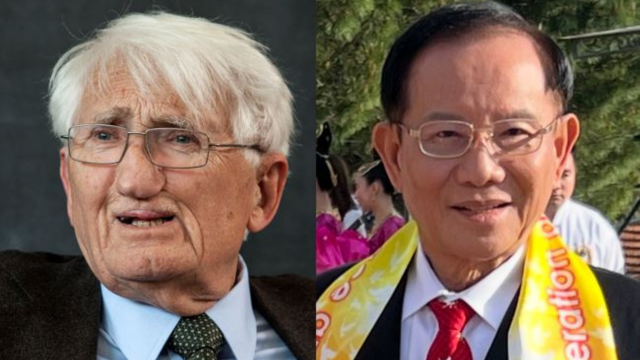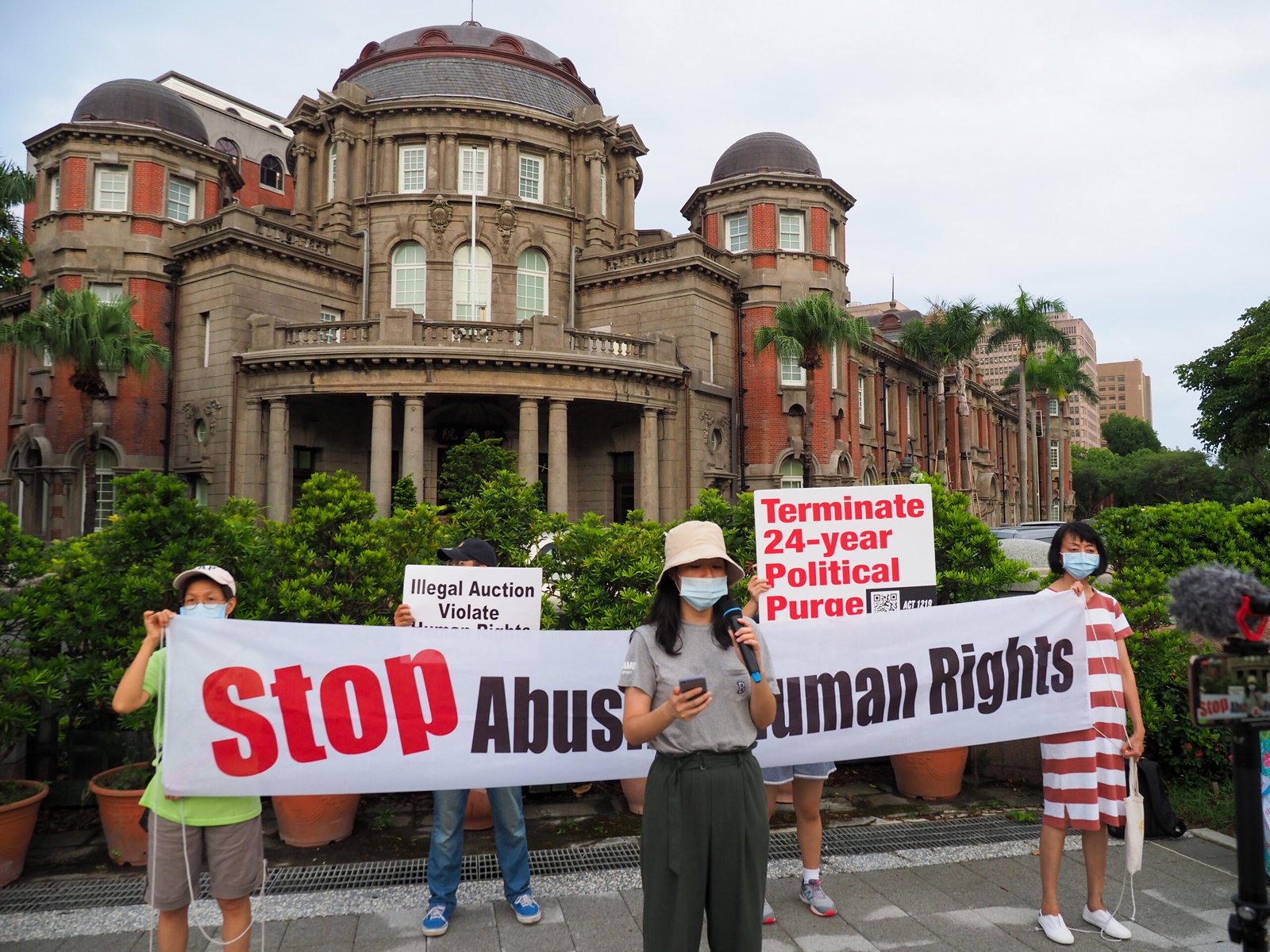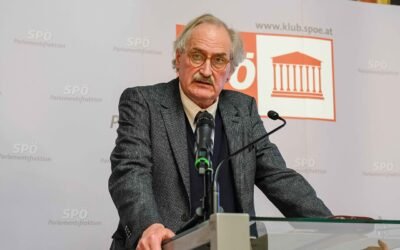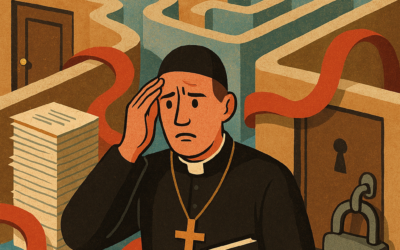The German philosopher argues that justice produces peace rather than vice versa. This lesson is relevant for Taiwan and the Tai Ji Men case.
by Massimo Introvigne*
*Introduction to the webinar “No Peace Without Justice for Tai Ji Men,” co-organized by CESNUR and Human Rights Without Frontiers on September 21, 2025, United Nations International Day of Peace.

Our theme today—”No Peace Without Justice for Tai Ji Men”—is not merely a slogan. It is a philosophical proposition, a moral imperative, and a political challenge. And to understand its full weight, I will begin not with Taiwan, nor Tai Ji Men, but with a thinker, now 96 years old, whose work has shaped our understanding of peace and justice in the modern world: Jürgen Habermas. He is a secular philosopher who acknowledges the relevance of religion in public life, a subject on which he maintained a lifelong dialogue with Pope Benedict XVI.
Habermas, one of the most influential philosophers of the late 20th and early 21st centuries, is best known for his theory of communicative action and his defense of deliberative democracy. But beneath these contributions lies a deeper ethical architecture—one that draws heavily from Immanuel Kant. Like Kant, Habermas believes peace is not simply the absence of war or conflict. It is the product of justice. It is the outcome of institutions and practices that respect human dignity, uphold the rule of law, and foster mutual recognition among citizens.
In his writings on international law and global governance, Habermas argues that peace cannot be imposed from above or negotiated through power alone. It must emerge from a shared commitment to justice. This means that peace is not a precondition for justice—it is its consequence. Where justice is denied, peace is fragile. Where justice is upheld, peace becomes possible.
This inversion of conventional wisdom—that peace leads to justice—is crucial. It reminds us that calls for reconciliation, harmony, or stability must not come at the expense of truth, accountability, or fairness. It warns us against the temptation to silence dissent in the name of unity or to overlook injustice in the name of social harmony. And it invites us to see peace not as a geopolitical arrangement but as a moral achievement.

Let us now turn to Taiwan—a vibrant democracy, a cultural crossroads, and a geopolitical flashpoint. Taiwan has long sought peace: peace with its neighbors, within its borders, and in its international standing. And yet, as Habermas would remind us, peace cannot be pursued in isolation from justice. It must be grounded in the ethical treatment of all citizens, including those who belong to spiritual minorities.
This brings us to the case of Tai Ji Men.
A respected menpai of qigong, martial arts, and self-cultivation, Tai Ji Men has been subjected to a decades-long ordeal that began with politically motivated repression in 1996 and continues to this day through the unjust consequences of a fabricated tax bill for the year 1992.
Despite a final acquittal by the Supreme Court of Taiwan in 2007, which declared Tai Ji Men innocent of all charges, including tax evasion, rogue bureaucrats within the National Taxation Bureau have refused to implement the ruling fully. They have clung to a technicality, maintaining a tax bill that contradicts legal precedent and factual truth. This has led to the seizure, unsuccessful auction, and nationalization of Tai Ji Men’s sacred land, the obstruction of religious freedom, and the erosion of public trust.
Now, one might ask: what does this have to do with peace and the International Day of Peace? The answer is: Everything.
The Tai Ji Men case is not merely a legal anomaly. It is a moral failure. It represents denying justice to a community that has consistently promoted peace through cultural diplomacy, international engagement, and the symbolic ringing of the Bell of World Peace and Love. Tai Ji Men has participated in thousands of events across over 100 countries, spreading messages of conscience, harmony, and human dignity. And yet, at home, it remains the target of institutional injustice.
This contradiction is not sustainable. A society cannot credibly advocate for peace while tolerating injustice. It cannot build bridges with the world while burning bridges with its citizens. And it cannot claim moral leadership while denying moral redress.
Habermas would call this a failure of communicative rationality—a breakdown in the dialogue between state and society, between law and conscience. He would urge us to restore that dialogue, not through compromise but through justice. He would remind us that the legitimacy of any legal system depends not only on its procedures but also on its responsiveness to truth.

Resolving the Tai Ji Men case is not a matter of administrative housekeeping. It is a test of Taiwan’s commitment to justice, a measure of its democratic maturity, and a prerequisite for the kind of peace that the United Nations International Day of Peace celebrates—not a peace of silence but a peace of dignity.
Let us remember Habermas’s lesson: peace is not the absence of conflict, but the presence of justice. It is not a gift from the powerful, but a right of the vulnerable.
Tai Ji Men has endured injustice with dignity, responded to repression with compassion, and turned suffering into service. Now, it is time for the state to respond in kind. It is time to pursue peace through justice and justice through truth. In the moral architecture of democracy, no stone is more foundational than the conscience of its citizens.

Massimo Introvigne (born June 14, 1955 in Rome) is an Italian sociologist of religions. He is the founder and managing director of the Center for Studies on New Religions (CESNUR), an international network of scholars who study new religious movements. Introvigne is the author of some 70 books and more than 100 articles in the field of sociology of religion. He was the main author of the Enciclopedia delle religioni in Italia (Encyclopedia of Religions in Italy). He is a member of the editorial board for the Interdisciplinary Journal of Research on Religion and of the executive board of University of California Press’ Nova Religio. From January 5 to December 31, 2011, he has served as the “Representative on combating racism, xenophobia and discrimination, with a special focus on discrimination against Christians and members of other religions” of the Organization for Security and Co-operation in Europe (OSCE). From 2012 to 2015 he served as chairperson of the Observatory of Religious Liberty, instituted by the Italian Ministry of Foreign Affairs in order to monitor problems of religious liberty on a worldwide scale.



